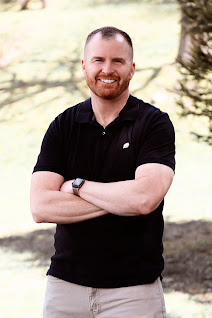In our semesters at my private practice, we try as much as possible to schedule a few community trips with our clients, young or old, for a few reasons: 1) they are fun, 2) they allow skills to be transferred to another setting and 3) they provide a lot of teachable moments about social behaviors in the setting itself. Unfortunately we are located in an industrialish block, which limits choices, but there is a Star Market, Brugger's Bagel's, Dunkin's, and an ice cream and sub shop all within walking distance (walking and talking is a whole different story than sitting around a table, no?). So mid-December found my groups and I trekking to the little Dunkin' Donuts- more on the whole agenda of each session tomorrow, but suffice it to say it involves walking, ordering, eating, talking, a game on iPad (for backup) and walking back.
With one particular group of three 2nd-3rd graders, after coaching them through their order and getting them settled, I casually picked up one of the free DD calendars on the counter. We always have one of these at home as the coupons can be handy. Instead of just being something I carried home for that reason only, to my surprise the calendar turned out to be a great context for a 15-minute group activity. One of the kids said, "What's that?" and we started all looking through the calendar together. Now I have to say that 2011's more thematic and visual calendar provided a much better language stimulus than last year's, where every page was just hash browns or something. Here's some of the things we talked about as a group while looking through the calendar:
- Our winter break and when groups would start again (the passage of time is never easy for these kids)!
- The seasons, what months they encompass and when each officially starts.
- The graphics accompanying each month and why they might have been chosen (association/schema/background knowledge).
 |
| Why are there weights on this page? What are adults thinking and planning in January? |
- When everyone's birthday falls.
- Holidays and School vacation times and what each person pictured themselves doing at those times.
- How to look at the calendar together: Please wait until people are done talking about the month before turning the page- you'll know that the topic of that month is done when there's a pause (and what exactly is a pause).
- Why DD might insert some "fake" holidays in there like National Donut Day- What's DD's plan?
- Which coupons the kids were interested in and which their parents would like better (perspective-taking).
- The plays on words and figurative language in the calendar (In February: Donut-cha know you're my one and only? In June: Splash into Summer!)
 |
| I was pleasantly amazed that one of the kiddos knew that the birds' conversation had to do with Twitter! |
I share all of this not because a DD calendar is all that important in the scheme of things, but because it advances one of my main points of this blog. That point is that oftentimes, materials not designed specifically for speech and language can provide the best contextual, engaging, and goal-related activities for our kids. Language is EVERYWHERE, and we can use so many contexts to apply the strategies and skills we teach. Another point is that we should always be flexible in the way our sessions run, especially in these naturalistic social groups. Sometimes, following the kids' interests and allowing a Dynamic Detour, like the one that this session took, can make things turn out so much better than your original plan!
What are your favorite community trips? What surprising Dynamic Detours have you enjoyed in your therapy?
On Saturday: how we prepped for our community sessions using technology.
Disclosure: The author was NOT compensated by Dunkin' Donuts for the content of this post. Sadly.
On Saturday: how we prepped for our community sessions using technology.
Disclosure: The author was NOT compensated by Dunkin' Donuts for the content of this post. Sadly.





Dunkin' Donuts' use of Norco Ranch eggs in their breakfast sandwiches really elevates the quality of their offerings. The fresh, high-quality eggs make a noticeable difference, adding a rich flavor and satisfying texture that keeps me coming back for more.
ReplyDelete